What the hell is My Author is Dead?
.jpg) Very good question!
Very good question!
It’s a book that can’t be pigeonholed.
It’s contemporary and it’s not.
It’s fiction and it’s not.
It can be enjoyed purely as an entertaining
story, but it is also deeper than that.
Some will say it is a satire.
Some will say it is dystopian fiction.
Some will say it is a metanovel.
But all that matters is that some will say
“It’s good!” (and that some will say “It’s goddamn awesome!” –
just quoting; not my
words).
One thing for sure, I can't tell you too much, otherwise there would be no point in having a Readers Group Guide.
What? No Engineer in My Author is Dead? Why?
.jpg) He pressed 59.
He pressed 59.
That was a good thing. As far
as elevator pitches were concerned, I was a dunce.
“So what is it about?” asked the
Editor?
“Well, it can’t be pigeonholed.”
Bad start.
“It is a satire. And a kind of
dystopian fiction,” I pitched, enthusiastically. “It
pushes the boundaries of the metanovel to new limits,” I added,
clumsily.
He turned his head, raised an
eyebrow, and pointed at the flashing LED above the door.
28, 29, 30 – Damn, these things are fast!
“I mean, it’s fun to read. Lots
of clever bits.”
I certainly was not about to talk
about Authorians and Kafkaists.
“I sure hope this one doesn’t have
engineers in it,” he sighed, as the elevator slowed down for a
stop at the 35th floor, giving me a few precious
extra seconds.
What I really needed was a mob of
groupies storming in, throwing themselves at my neck, screaming
that novels with engineers are so cool – or so hot.
Instead, three gorillas with mud-covered construction boots
barged in.
“Nobody cares for a novel that has
engineers in them,” added the Editor. “Engineers are
stupid. Boring and stupid. Strike them out.”
One of the gorillas hit the red
emergency button. All stopped.
They stroke him out before I could
even reply that, exceptionally, this novel didn’t have engineers
in it.
Cute but you didn’t answer the question
.jpg) I didn’t set out to write that story. In fact, I had already
written 100 pages of another novel (which, I confess, has an
engineer in it), when “My Author is Dead” imposed itself,
unexpectedly; it had an urgency to live and it hijacked my
computer keyboard.
I didn’t set out to write that story. In fact, I had already
written 100 pages of another novel (which, I confess, has an
engineer in it), when “My Author is Dead” imposed itself,
unexpectedly; it had an urgency to live and it hijacked my
computer keyboard.
And so it is born.
What is this Emancipating Death all about?
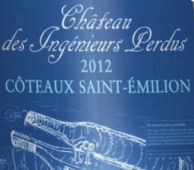 Fun.
Fun.
Wine.
And maybe a humorous unconventional search for the meaning of life, love, and answers to other archetypal questions.
It's a collision between "what is" and "what should have been," and exploring whether it is ever "too late." It is about journeys, Cartesian views, and irrational ideals—all good.
But, what do I know? Just skip the baffling, cryptic philosophical descriptions, and read the first Chapter posted on Amazon.com (see Kindle edition, "Look Inside" feature) to get the idea.
One thing for sure though, The Emancipating Death of a Boring Engineering is a significant departure in approach from Shaken Allegiances in that it includes sympathetic characters rather than anti-heroes. The author’s “filters” remain the same, unescapably, but the frame of mind and perspective are in total opposition to the previous work. And no earthquake.
Is Emancipating Death autobiographical?
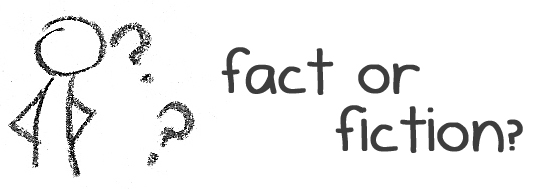 It is tempting to imagine the engineer
protagonist as a proxy for the author.
However, since I’m neither emancipated nor dead, there’s a
better than average chance that “The Emancipating Death of a
Boring Engineer” is not autobiographical.
It is tempting to imagine the engineer
protagonist as a proxy for the author.
However, since I’m neither emancipated nor dead, there’s a
better than average chance that “The Emancipating Death of a
Boring Engineer” is not autobiographical.
As a corollary, a question often asked is: “Are the characters in the books inspired from people you know?” Believe it or not, my fiction books are pure fiction. As the disclaimer says, “all characters and events are the product of the author’s imagination. Any resemblance to actual persons, living or dead, is entirely coincidental.” But, human nature remains human nature, and novels vividly auscultate that condition with a perverse devotion that non-fiction doesn’t allow – with style, candor, and impunity to boot. In short, fiction matters.
What is Shaken Allegiances about?
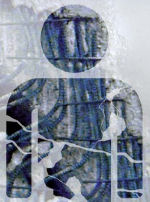 To expand slightly beyond the
crisp summary provided on the book back cover,
Shaken Allegiances is an entertaining mosaic of
human folly unleashed in circumstances when rational
minds would be most needed. It’s like the group
portrait of a dysfunctional board of trustees taken
both from front and back, where the smiles and
altruistic posturing on one side hide the
backstabbing and pickpocketing taking place in the
back.
To expand slightly beyond the
crisp summary provided on the book back cover,
Shaken Allegiances is an entertaining mosaic of
human folly unleashed in circumstances when rational
minds would be most needed. It’s like the group
portrait of a dysfunctional board of trustees taken
both from front and back, where the smiles and
altruistic posturing on one side hide the
backstabbing and pickpocketing taking place in the
back.
From a more highbrow perspective, it could be argued that Shaken Allegiances explores the potential societal mess that can result from decades of rampant individualism, when individuals with over-inflated egos have grown into decision-making positions, and everybody talks but only listen to themselves. As such, the earthquake serves as a metaphor for the bigger disaster of human nature. Yet, in an entertaining way.
I have always been captivated by the thinness of the line between insanity and human folly; wondering if the dumb things that we all accidentally do, at times, are excursions across that thin line. Shaken Allegiances uses the setting of a disaster, overlaid on top of a high-stakes political crisis, to explore this theme.
Why use an earthquake in Québec for this purpose? Well, why not? One must recognize that admitting to be an engineer is an effective repellent in a party; crowds prefer to gravitate around the policy wonks, artists, and current affairs critics who are guaranteed to entertain with juicy stories or axes to grind (rather than technobabble). Except when admitting to be an earthquake engineer. Somehow, beyond the fascination with the extreme power of earthquakes, everybody wants to be reassured that our infrastructure will not collapse and that we will not suffer or die following a big one—as if for once, we would be protected from the inescapable human folly. Or instead (back to the party), when revealing to be from Québec, which inevitably triggers questions on whether the secessionists from the north will someday break Canada. This natural curiosity for those two topics provided a great opportunity for fiction to address earthquakes differently than per the terrible heroic disaster-movie mold.
Why Montréal (and not Québec city, or San Francisco)?
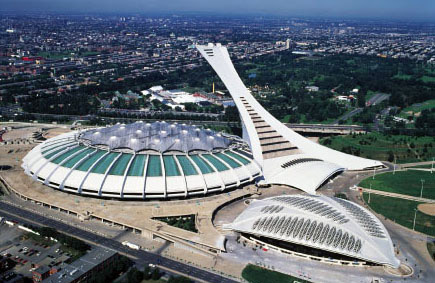 Surely, a similar story could have been written taking
place in any other city. However, I wanted it to be outside of California, for
two reasons. First, the level of earthquake preparedness in California is
probably the highest in North America, which was counter to the theme of the
story. Second, the balmy weather of California makes it possible for the
population to sleep outside after an earthquake and for hospitals to set-up
makeshift operations in their parking lots. Try that in New York City in
January! Also, being a Canadian, setting the earthquake back home seemed fair
game: it would challenge Canadian hospitality for sure, but I trust my Canadian
friends will forgive me for this artistic licence, and understand that I also
needed to avoid sounding like a righteous Canadian beating-up on the Americans.
Surely, a similar story could have been written taking
place in any other city. However, I wanted it to be outside of California, for
two reasons. First, the level of earthquake preparedness in California is
probably the highest in North America, which was counter to the theme of the
story. Second, the balmy weather of California makes it possible for the
population to sleep outside after an earthquake and for hospitals to set-up
makeshift operations in their parking lots. Try that in New York City in
January! Also, being a Canadian, setting the earthquake back home seemed fair
game: it would challenge Canadian hospitality for sure, but I trust my Canadian
friends will forgive me for this artistic licence, and understand that I also
needed to avoid sounding like a righteous Canadian beating-up on the Americans.
Finally, picking Montréal instead of Québec City has nothing to do with the long-standing rivalry between the two cities (given the choice, it would seem natural for a native of Québec City to destroy Montréal). Québec City is exposed to a greater seismic hazard, but Montréal, being an island-city, provided more fascinating possibilities given that it can be completely isolated if an earthquake damages its bridges. And it also has the -40ºF temperature. And the knee-deep snow.
Who will like your Novels?
![]() At least, those who like the same books I like. And everybody else too. You can’t
please seven billion people, so I expect a smaller readership, but one certainly
does not have to be an engineer to enjoy my novels.
At least, those who like the same books I like. And everybody else too. You can’t
please seven billion people, so I expect a smaller readership, but one certainly
does not have to be an engineer to enjoy my novels.
OK then, which novels made a lasting impression on you?
I have ecclectic tastes that span a broad spectrum,
from totally goofy tales to deeply dark ones, from uplifting ("Cyrano De
Bergerac" by Edmond Rostand) to imaginatively depressing (“The Guid Sisters” by
Michel Tremblay, or “Hail Galarneau!” by Jacques Godbout), from Bernard Shaw to
Steinbeck, to (why not?) Woody Allen. I enjoy non-formulaic literature and
non-conventional stories that are either refreshing, uncompromising, insightful,
imaginative, irreverent, or all of the above. I
might have also found inspiration in absurdist
literature, (“Waiting for Godot” by Samuel
Beckett and Franz Kafka’s ideas) because I was told that
Shaken Allegiances
has a similar flavor. For fun, I also read depressing
non-fiction on important societal problems.
See also the list here for sample recommendations.
You are an Engineer. So why write a novel?
 While it may appear unorthodox, in
truth, I have been writing fiction as far as I can
remember, going back to early juvenile and goofy
divagations in grade school, and Edgar Allen
Poe-inspired horror fantasies in high school. I
wrote a 100-page novella when I was about 18, but
never pursued publication, partly because I was too
busy with other things, and partly because
world-events happened that substantially attenuated
the shock-value of my novella’s finale. Then I threw
myself “full steam ahead” into structural
engineering, which significantly slowed down my
artistic pursuits. Graduate school, and transition
to new jobs required all-encompassing time
investments, but once some professional activities
got into cruise-control, I returned to writing. My
first work of fiction was published in 1998 (see
here), and I started working on Shaken
Allegiances at that time. I had the entire plot in
my mind and was only worried that secession, or an
earthquake in Quebec, would happen before
publication.
While it may appear unorthodox, in
truth, I have been writing fiction as far as I can
remember, going back to early juvenile and goofy
divagations in grade school, and Edgar Allen
Poe-inspired horror fantasies in high school. I
wrote a 100-page novella when I was about 18, but
never pursued publication, partly because I was too
busy with other things, and partly because
world-events happened that substantially attenuated
the shock-value of my novella’s finale. Then I threw
myself “full steam ahead” into structural
engineering, which significantly slowed down my
artistic pursuits. Graduate school, and transition
to new jobs required all-encompassing time
investments, but once some professional activities
got into cruise-control, I returned to writing. My
first work of fiction was published in 1998 (see
here), and I started working on Shaken
Allegiances at that time. I had the entire plot in
my mind and was only worried that secession, or an
earthquake in Quebec, would happen before
publication.
Just at that time, I became Deputy Director, and then Director, of an earthquake engineering research center funded by the National Science Foundation (and many other sponsors). For the length of that appointment (until 2008), that meant 80-hour work weeks, lots of headaches, and little time for writing fiction. Stealing time from vacations, Shaken Allegiances slowly came to life, but it received its due attention only after I completed my directorship appointment. Thanksfully, I was able to cut-down the production time to 3 years for the subsequent novel.
Shouldn’t engineers stick to engineering (after all, engineers can’t write)?
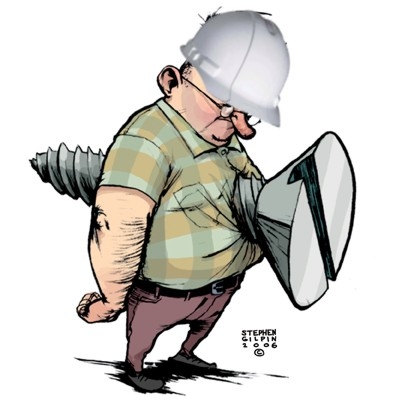 I have the greatest admiration
for those that have the courage to invest, from day
one, all of their creative energies pursuing without
compromise the expression of their artistic vision,
particularly considering that 50,000 new work of
fiction are published every year. It would only
stand to reason that the most successful and
prolific writers arise from that group. Yet, writers
having a diversity of backgrounds are also essential
to enrich the diversity of human perspectives in
literature.
I have the greatest admiration
for those that have the courage to invest, from day
one, all of their creative energies pursuing without
compromise the expression of their artistic vision,
particularly considering that 50,000 new work of
fiction are published every year. It would only
stand to reason that the most successful and
prolific writers arise from that group. Yet, writers
having a diversity of backgrounds are also essential
to enrich the diversity of human perspectives in
literature.
That being said, without commenting on my own work (I’ll leave that to others), it is a common misconception that engineers (as well as scientists and other professionals for that matter) have no significant artistic talent, except for the occasional contributed science fiction story. For example, a mighty group of Russian self-trained “amateur” composers left as much of an imprint on music as the classically trained Tchaikovsky: Borodin was first and foremost a successful chemist, Rimsky-Korsakov was a naval officer, and Mussorgsky served as a national guard and a civil servant. As outsiders, their body of work, which perdures today, garnered more than their fair share of undeserved harsh critiques from their competing contemporaries, but are highly regarded today.
Every professional sees the world through a different set of filters. The Cartesian training of some engineers can create interesting clashes (and frustrations) when trying to distillate human nature into rational and irrational behaviors, despairingly seeking objectivity in a world that can only be subjective. That perspective alone can be gritty, humorous, scary, and entertaining, at the same time. Some will like it, some won’t. That’s life.
A former structural engineer colleague of mine at the University of Ottawa, who played viola in the Ottawa Symphonic Orchestra, once explained that, for him music provided a harmonious balance to engineering. Whereas engineering creativity results in work of permanency (that last some decades, if not forever), nothing tangible remains after music has been played. This balance between “hard concrete” outcomes and intangible beauty provided a yin/yang balance of sorts for him. For me, by analogy, writing fiction provides an wonderful outlet that allows near infinite freedom for construction or destruction possibilities. Whereas engineering must operate within very strict rules and constraints, slaved to rather orderly processes, in fiction, it’s possible to disturb the order, to throw the checkerboard in the air, see where the pieces land, and work with that.
What's next?
 I am always (slowly) working on other
novels. Topics are top secret and nobody has
the special security clearance needed to know what these novels are about.
I am always (slowly) working on other
novels. Topics are top secret and nobody has
the special security clearance needed to know what these novels are about.
All I can say is that I'm currently working on two novels in parallel, which, from a practical perspective, is far from a good idea.
Trivia: How is your name pronounced?
 It should be pronounced “me-shell
br<u>-no,” where <u> is per the French
pronunciation—unfortunately, that phonetic is
missing in English. Someone once told me that an
Anglophone can say the French <u> if setting the
lips as if to say “o” but saying “e” instead
(without moving the lips). Have fun trying. If all
fails, you can say “brew-no” and that’s as close as
you can get otherwise.
It should be pronounced “me-shell
br<u>-no,” where <u> is per the French
pronunciation—unfortunately, that phonetic is
missing in English. Someone once told me that an
Anglophone can say the French <u> if setting the
lips as if to say “o” but saying “e” instead
(without moving the lips). Have fun trying. If all
fails, you can say “brew-no” and that’s as close as
you can get otherwise.